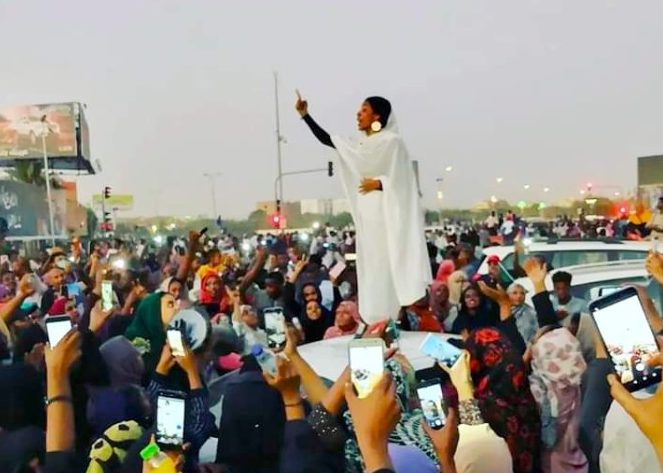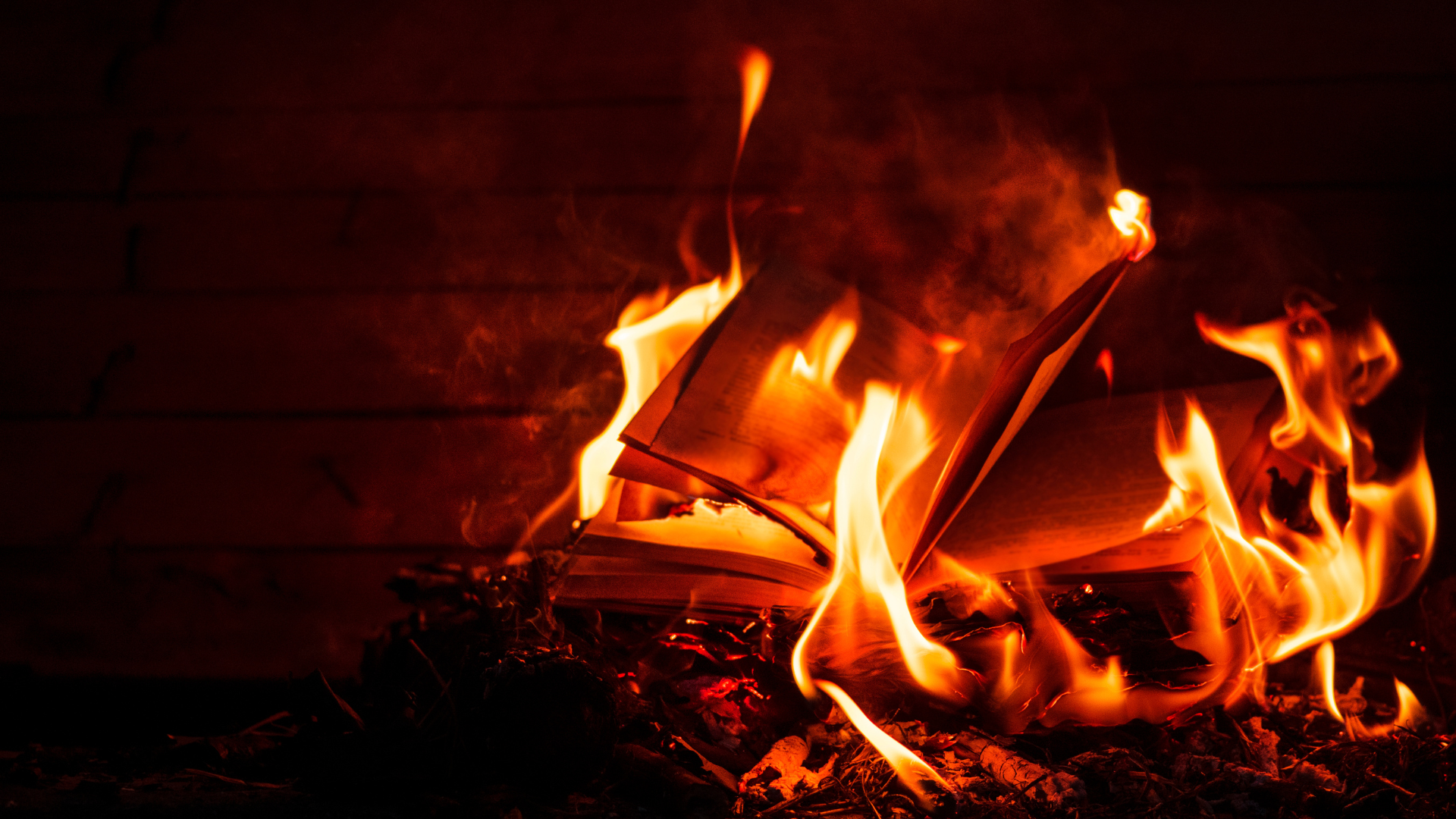By Sara Sajjad

“The bullet doesn’t kill. What kills is the silence of people.”
In April 2019, a viral image of anti-government protestor Alaa Salah chanting this line whilst standing on a car amidst crowds in Sudan’s capital, Khartoum, captured the fierce spirit of resistance amongst Sudanese civil society.
Crowds of demonstrators, like Alaa had taken to the streets to overthrow President Omar Al-Bashir – a leader that had subjected Sudanese people to a brutal regime during his thirty years of power. His legacy of austerity and economic hardship, severe human rights abuses (including an ICC indictment for war crimes and genocide), and continuous violence towards dissenters and religious minorities had driven Sudanese people to the streets – demanding his resignation. Most recently, a series of protests began in December 2018. They culminated in thousands of demonstrators defiantly enduring tear gas and arrests from security forces, whilst closing in on the military headquarters in April 2019. On the 11th of April, the military announced Bashir had been ousted and his three decades of tyranny had come to an end.
The protestors’ hard-won and historic victory was short-lived however. Bashir’s regime was swiftly replaced by a military junta, the Transitional Military Council (TMC). This was an outcome broadly rejected by the protestors who described the TMC as the same regime under a different leader. Hence, they continued a sit in protest near the military headquarters, led by the Sudanese Professionals Association (SPA) in Khartoum, calling instead, for a civilian led government. Negotiations and peaceful protests quickly came to a halt in early June when the TMC used a paramilitary group called the Rapid Support Forces (RSF) to attack protestors. The RSF had ties to Janjaweed, a notorious armed militia which was complicit in the ethnic cleansing that occurred in West Darfur in 2003-2004, during which they ‘killed, raped and tortured thousands’. Sarah Jackson, Amnesty International’s Deputy Regional Director for East Africa described the RSF’s crackdown on protestors as ‘senseless slaughter’. There have been over 128 people killed, over 700 people injured and more than 70 reported cases of rape.
In spite of this, in the face of rising violence – the United Nations pulled its staff from Sudan and the Security Council has failed produce a comprehensive and robust plan of action. Condemnations from the US and UK have not been matched with action and international outrage is scarce. Meanwhile, violence continues to escalate, bodies are being dumped in the Nile and a bloodied massacre is taking place.
Mirroring Alaa Salah’s protest chants in April – the Sudanese people have refused to be silenced.
Remarkably, despite a ‘near-total’ internet blackout, the relentless civil disobedience of Sudanese civil society, their fatalities and ‘martyrs’, as well as protests and vigils held by the dispersed Sudanese diaspora, have been meticulously recorded on social media. Widespread hashtags such as #IAmTheSudaneseRevolution and #BlueForSudan have taken over Instagram and Twitter. In solidarity, people everywhere are changing their display pictures to blue, the favourite colour of martyr Mohammed Hashim Mattar, who was killed on the 3rd of June whilst protecting two women from shootings. Crucially, the social media response to the crisis in Sudan raises awareness and contests normalisation of the occurring violence.
However, the situation in Sudan is dire and social media outrage is not enough. We must consistently demand action – write to your MP, member of Congress or local representative and if their response is inadequate, write again. Show up in support to local demonstrations and vigils and continue to raise awareness on the internet. The deafening silence of the international community is lethal, and it is up to all of us to urgently challenge it.
Sara Sajjad is a student on the MSc in Human Rights at the London School of Economics and Political Science
Editorial Comment: Given the urgency of the situation in Sudan, and the lack of coverage in mainstream outlets, the editorial team have chosen to publish this op-ed as it carries an important call to action.


I’m watching the developments in Sudan quite closely and feel some relief that the protesters made progress with the government and that internet access is being restored.
When I heard reports about internet access being restricted, it made me feel very uneasy as if it was being weaponized.
It’s true what you say, social work is difficult! I think our society is too distracted at the moment and not many people fatigued by numerous ’emergencies’.
Hi, Its is really a nice blog worth to read and share.
Thanks for the post